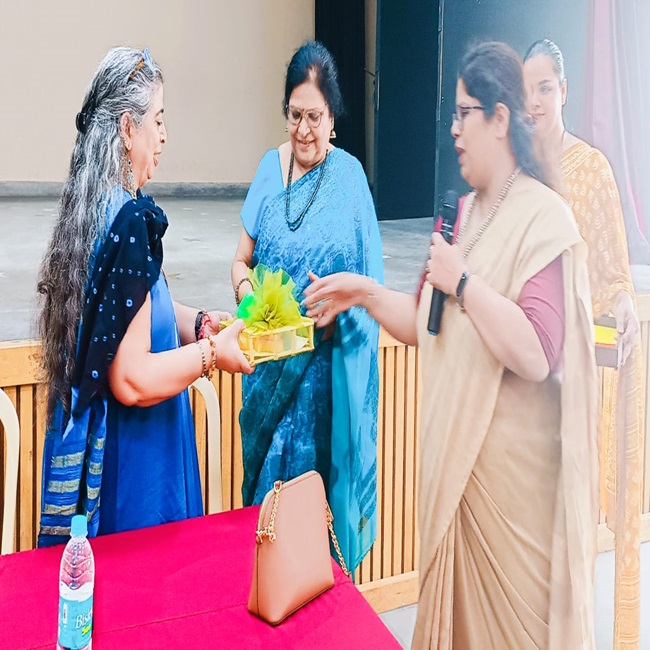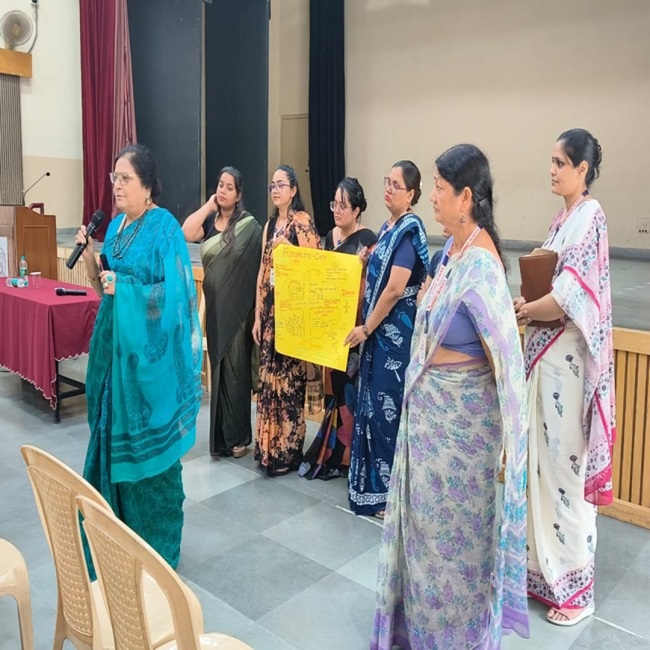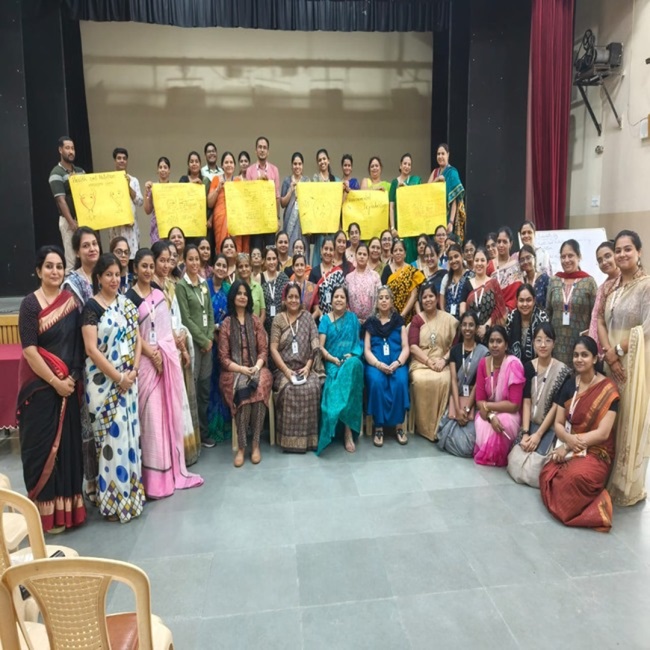Teacher workshop on Interdisciplinary Approach through Projects
"Projects are the bridge between theory and practice; they transform abstract ideas into tangible outcomes and empower learners to engage deeply with their education, discovering the value of knowledge through real-world application."
The Indian School recently hosted an enlightening workshop titled "Interdisciplinary Approach through Projects", on 11 September, 2024. The workshop was attended by the teachers of classes 1-8. The three hour workshop was conducted by noted academician and educationist, Dr Usha Ram. With her vast experience across national and international educational ethos, Dr Ram shared her expertise and insights, leaving a lasting impact on all attendees.
The workshop focused on two significant frameworks—National Curriculum Framework (NCF) 2023 and National Education Policy (NEP) 2020. Dr Ram elaborated on the purpose, scope, aims, and components of both frameworks while providing a clear comparison between the two. This helped the teachers understand how to implement these policies in their classrooms through various teaching methodologies.
Key features of NCF and NEP discussed during the workshop included:
-Holistic Development
-Learner-Centred Approach
-Inclusivity and Equity
-Integration of ICT and Environmental Education
-Continuous and Comprehensive Evaluation (CCE)
-Teacher Empowerment
-Life Skills Education
Dr Ram provided numerous examples of projects that adopt an interdisciplinary approach, showcasing how to creatively and effectively teach complex topics. Following the presentation, teachers had a chance for a hands'-on experience by working in six groups, each focusing on one of the following themes:
*Futuristic City
*Health and Nutrition
*Population
*Environmental Degradation
*Global Warming
*Transportation: Life Cycle
Each group creatively integrated different subjects, using innovative tools like art and music to develop their projects. The activities highlighted how seamlessly various disciplines can be woven together, making learning more engaging for students.
In conclusion, the workshop illuminated the transformative power of experiential learning. It explored how active, hands'-on engagement can deepen understanding, foster critical thinking, and cultivate a more dynamic learning environment. By integrating real-world experiences, simulations, and collaborative projects into our teaching practices, we can better address diverse learning styles and needs, making education both meaningful and memorable.
The workshop was a wonderful learning experience, as it not only provided teachers with deeper clarity on the NCF and the NEP but also equipped them with practical techniques to implement these policies in the classroom. Emphasising "education to reality" and the "4H" approach—Head, Heart, Hand, and Health—teachers walked away with valuable insights into fostering holistic development and creating learner-centred environments.















